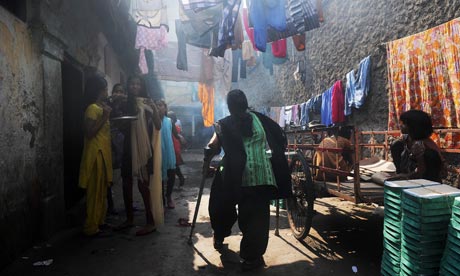The communique released at the end of the UN high-level panel (HLP) meeting on the post-2015 development agenda failed to mention disability, repeating in Bali the same omission notable in last month’s official communique from the Monrovia meeting.
It was a surprising oversight. Disabled people’s organisations had made a clear recommendation to the panel: in the monitoring and evaluation of targets and indicators, data should be disaggregated by disability. Building on learning from the millennium development goals (MDGs), and the inequality in progress under them, no post-2015 target should be considered to be met unless it equitably reached disabled people, they argued.
Their exhortations continued to fall on deaf ears, however. And if things don’t change, we risk the new development framework repeating a central failing of the MDGs – specifically, failing to tackle inequality by leaving out the world’s 1 billion disabled people.
For more on this story, visit: Disability must be a central plank of the post-2015 development framework | Global development | guardian.co.uk.

